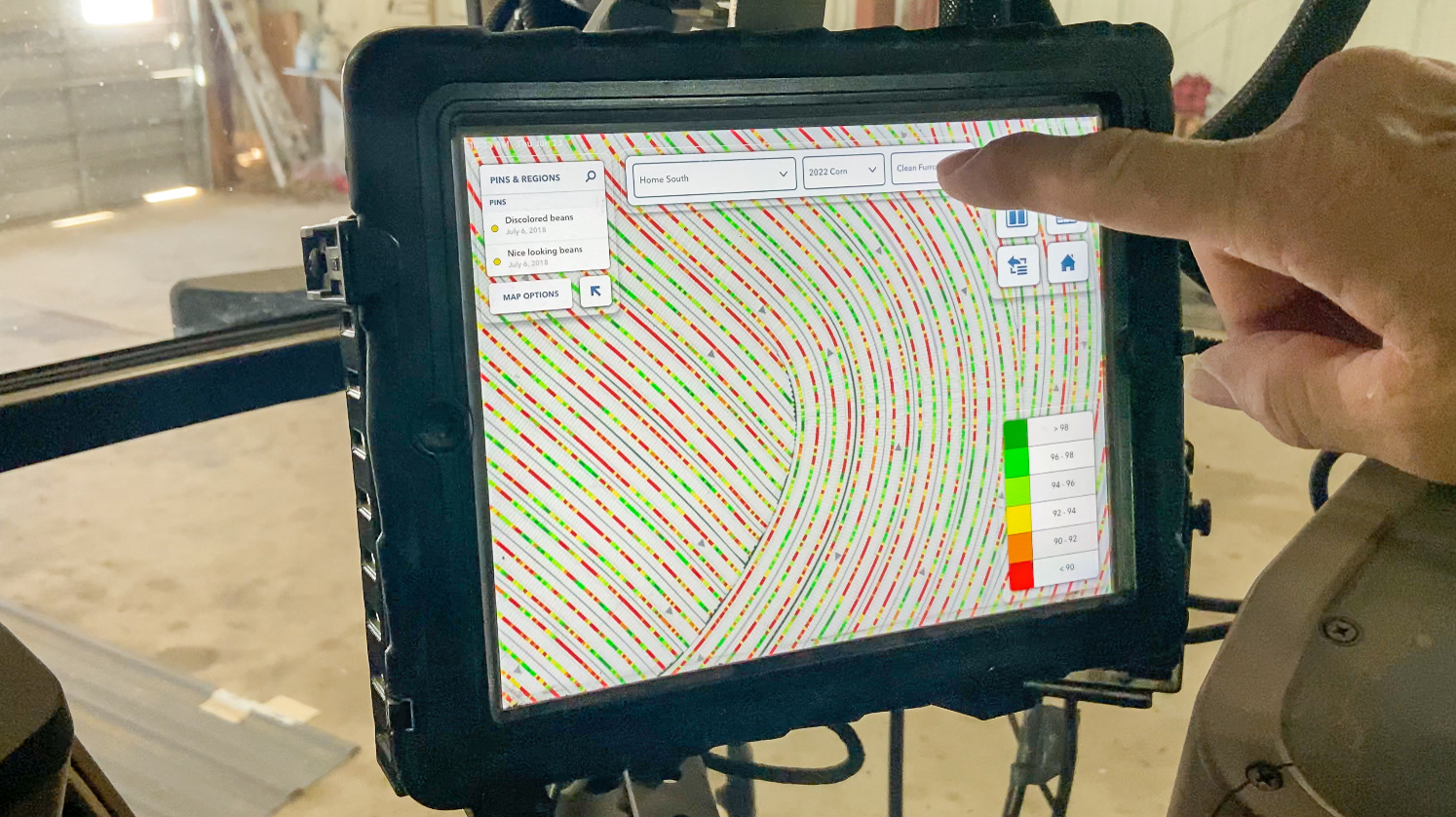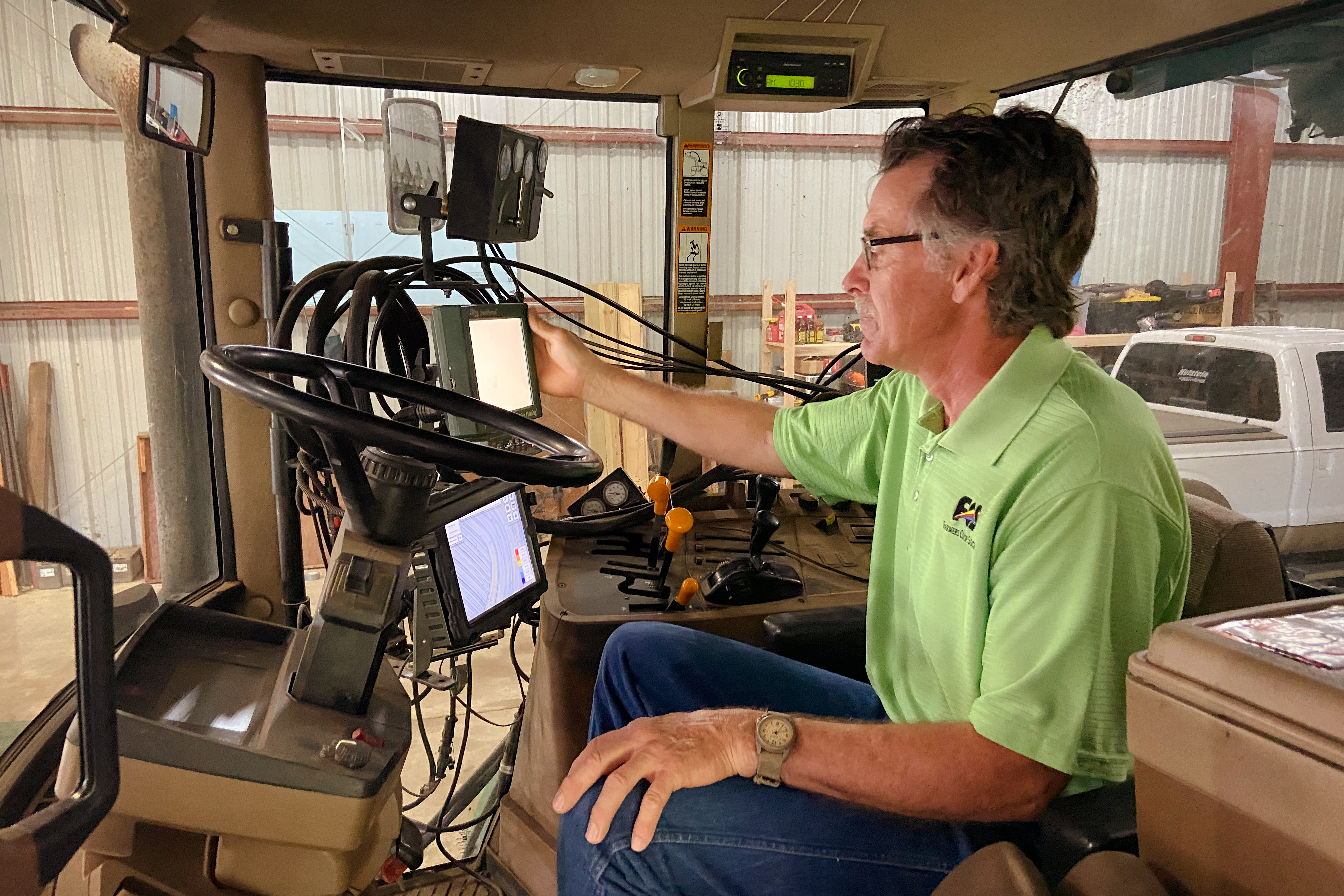Today we live in a world that demands more from our farmers every year. The demand to produce enough food to keep up with population growth, to produce more with less ground due to urban sprawl, and produce good crops through weather extremes (floods, droughts, and derechos). Verlyn Raak, a local farmer south of the Sioux Center, has seen these increased demands and pressures placed on farmers and leans into the lessons his father taught him to protect the land with sustainable decisions and to try new ideas and technology.

Verlyn grew up on a farm outside of Ireton with his parents where he became involved in the family farming operation at a young age. Verlyn learned early that it’s important to protect the land. Verlyn’s father was a strong conservationist from the start, “I would say 50 years ago my father put in miles of terrace, he was big on terraces and that kind of ground protection”. Today, Verlyn is passing that history lesson onto his son, who will take over the operation and is making more and more daily decisions, “My dad was very good at letting me try new things when I was young. It’s my turn to let my son make those decisions, see what happens and see what new ways there are to do things”. Together they have started adopting new technology and making operational changes based on the data’s results.
Verlyn has chosen to partner with Farmers Coop Society on several of his sustainability initiatives. On his operation, one of the biggest changes he’s made that has positively impacted his farm was to work with our expert Precision Ag Team and implement precision ag equipment, hardware, as well as data management.

The Precision Ag Team and our Elite Crop Consultant have worked alongside him to implement variable rate planting, variable rate nutrient applications, new strategies based on data from group field tests, and more. In addition to implementing data-driven technology, Verlyn has been exploring and experimenting with other conservation practices. The past few years he’s been trying no-till on a few fields. This past year he was able to see firsthand how no-till can work. In the little rain we had this past season, Verlyn saw his no-till fields stop the water from running off and absorbing into his ground. After seeing the results firsthand and fuel prices being high, he plans on implementing more this season.
Verlyn has also been experimenting with cover crops for the past few years. The first time he tried cover crops didn’t go over well. But when talking about trying new things he has this advice, “There’s a learning curve in all these things. That’s just part of farming. Every year is different. I always give things three years before I decide about them.” This past year, the cover crops worked well and he was able to see some of that benefit with the wind erosion this past summer, “I was really happy that some acres were planted with a cover crop. I was able to see first-hand that my fields with cover crops collected dirt from surrounding areas. With all the high winds and dust storms, it was a good year to have some cover crops in there”.
Implementing some cover crops and going no-till in some of his fields also brought him access to new market opportunities. This past year, Verlyn has been working with Jeff Koops, who helped him participate in one of Truterra’s sustainable offerings. He said that this just made sense, he was already using these sustainable practices so he might as well get paid for them. Jeff and the historical data he has in Elite Crop made the entire process simple for him.

Looking toward the future, Verlyn has big plans. He plans to continue to try new technology, although he still loves to drive and doesn’t think he wants to try autosteer soon. He will also allow the technology to do what it's intended to do and learn how to maximize the value of his ground. Agriculture is becoming more and more technical and there's a lot of thought and planning that goes into growing each year. He also thinks he can continue to push the boundaries. He can’t wait to see the 300 number in his combine in the fall. He says, "I know my dad was shocked when it hit 200" and would love to get there one day. He knows it's doable but also says that we need to learn how to do it efficiently and sustainably. He wants to find the balancing act of not over-applying fertilizer and chemicals and is looking forward to that challenge. “It’s a technical world, it’s challenging but it’s exciting too.”